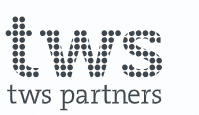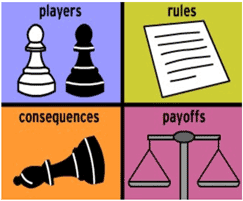Developed by John von Neumann and Oskar Morgenstern in the 1940s, game theory bases a predicted outcome on the interaction between two individuals’ decisions; the success of one individual’s chosen strategy or decision is dependent on the strategy or decision of the other individual and vice versa.
Although typically associated with political science and economics, the theory has been applied to successful negotiations within procurement. It demonstrates why two “rational” individuals may not choose to cooperate effectively despite both knowing that to do so would be in their best interests.
Supply Chain Digest Says... |
 |
| In procurement the design aspect of game theory is particularly effective, as the buyer typically sets the rules for the negotiation process. |
 |
What do you say? |
| Click here to send us your comments |
 |
| Click here to see reader feedback |
|
|
On the web site Chartered Institute of Procurement and Supply –  basically the Euro version of the US Institute for Supply Management – comes this overview of game theory in procurement, written by consulting firm TWS partners. basically the Euro version of the US Institute for Supply Management – comes this overview of game theory in procurement, written by consulting firm TWS partners.
What is Game Theory?
Game theory is the scientific modelling of interactions between different parties each pursuing their own interests. The parties interact and choose their action in view of what the other parties might think and do. Economists call this game theory and they think about such interaction as a ‘ply-by-ply’ game, where each player is trying to find an optimum strategy.
Research on game theory is a very active branch of economics which has won several Nobel Prizes. The application of game theory in business is two-fold:
Winning the Game
First, game theory is a method for understanding the “rules” of an interaction and for finding the best strategy in that setting.
Imagine you are considering two pieces of jeweler on a market stall. The seller asks you which one you prefer. If you reveal your true preference, will he quote you a higher price for that piece than he otherwise would have? Should you bluff and say you prefer the other, only switching at the last moment? What if the seller accepts that strategy and believes that you will be bluffing? What if he thinks that you think that he thinks you are bluffing?
Should you start with a very high asking price for your house to anchor the negotiation in that price range? Or do you let the other side make the first offer? How do you react to a counter-offer with an expiry date?
If your company is bidding for a contract, what can you do to differentiate your bid without being dragged into an all-out price competition? Would you take a different approach if you were pitching to a repeat customer?
Game theory characterizes such situations and describes each action and response as the moves of a game. Game theory experts then work their way ‘backwards’ from winning positions to the start of the game and analyze how good outcomes can be achieved and bad ones avoided. They develop “dominant” strategies, whose outcomes are independent of how the other parties act. They also look for “fixpoints” or “equilibria,” where the different participants’ actions lead to stable and satisfactory outcomes.
Game theory finds the best strategy for you, given a specific “playing field.
Inventing a New Game
Second, game theory is a method for structuring interactions so that the participating parties are steered towards a desirable outcome.
(See More Below)
|
CATEGORY SPONSOR: SOFTEON |
|
|
| |
|
|
 When an employer and a union cannot find an agreement, both parties suffer. Can they resolve their negotiation deadlock without the damages from industrial action? How can they determine whether and where a compromise is possible, without weakening their respective bargaining positions? When an employer and a union cannot find an agreement, both parties suffer. Can they resolve their negotiation deadlock without the damages from industrial action? How can they determine whether and where a compromise is possible, without weakening their respective bargaining positions?
If teachers are rewarded based on the grades of their students, are they encouraged to become better at teaching or tempted to hand out good grades for poor work? Is a better incentive scheme possible?
A government wants to assign grant money so that it is put to best use. How can they know how much to assign, if all suitors are overestimating their needs? Ideally, the receivers should return unused funds for reallocation at the end of the year, rather than squandering them just before the deadline. Is there a mechanism that reveals the truth and rewards frugal management?
Game theory tells you which environment you have to create so that everyone will be doing the right thing. By choosing which information to reveal, when and to whom, and by establishing how you react to certain actions and offers, you are changing the rules of an interaction. This, in turn, sets the incentives for everyone else. Your rules can make the other parties reveal their true intentions, encourage cooperation, and steer the interaction towards the best result.
Game theory helps to design a playing field where everyone is working towards the best outcome.
If you are splitting the bill, order a starter, too – or change the rules of the game!
Game Theory for Procurement
In procurement the design aspect of game theory is particularly effective, as the buyer typically sets the rules for the negotiation process and the clauses that govern the contractual relationships after supplier nomination.
Each procurement negotiation and contractual relationship can be described in the game theory framework. Game theory then yields answers for key questions in strategic procurement, such as:
• How do you set the best rules for the negotiation game or sourcing activities in general?
• How can you ensure the rules are accepted and adhered to by all participants?
• How do you incentivize suppliers to provider better value?
• How can the resulting outcome be sustainably enforced and adapted to changing circumstances
With that introduction, next week we’ll back with 10 success factors for game theory in procurement.
Do you think game theory can be used in procurement? Let us know your thoughts at the Feedback section below.
Your Comments/Feedback
|